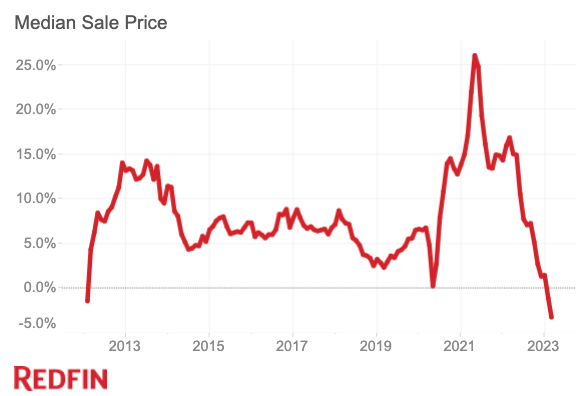From US News:
New Jersey Housing Market Forecast
Buyer demand in New Jersey remains strong, says LaRue. But higher borrowing rates have had an impact on buyer demand.
“Two years ago, people were paying over $100,000 over asking,” says LaRue, referring to a typical home in her market. “Now, you’re maybe getting a little bit over.”
That said, homes that are coming on the market that are more updated and located in nicer neighborhoods are seeing more offers and being sold for top dollar, LaRue says. Homes that aren’t as updated and on busier streets aren’t getting as many offers – but they’re getting offers nonetheless.
In March 2023, the median home price in New Jersey was $660,000, according to Redfin data, marking a 2.2% decrease year over year. On a national level, the median home price in March 2023 was $401,000, down 2.4% from a year prior.
Not only are New Jersey’s home prices higher than the national average, but the state has the dubious distinction of having the highest property taxes in the nation. In 2022, the average New Jersey property tax bill rose to $9,490. But those higher housing prices and taxes are commonly offset by a higher earnings potential.
“Not many people would choose to spend this much money on property taxes unless there were some sort of benefit to their income,” LaRue says.
LaRue says that when buyer demand was at its peak, bidding wars would commonly drive New Jersey home prices upward. These days, she’s still seeing bidding wars, particularly for homes that are the most desirable. These includes homes with expansive backyards and those that allow for multigenerational living. But bidding wars have slowed down quite a bit, especially for average properties.
Even New Jersey beach homes – a usually hot commodity – are seeing sellers who are open to negotiation, says LaRue. “Today’s mortgage rates are keeping buyers a little more conservative in their offers,” she says.
Meanwhile, in March 2023, the median rent price in New Jersey was $3,156, an increase of 7.5% year over year. On a national level, the median rent price in March 2023 was $1,996, up 4.7% year over year.

